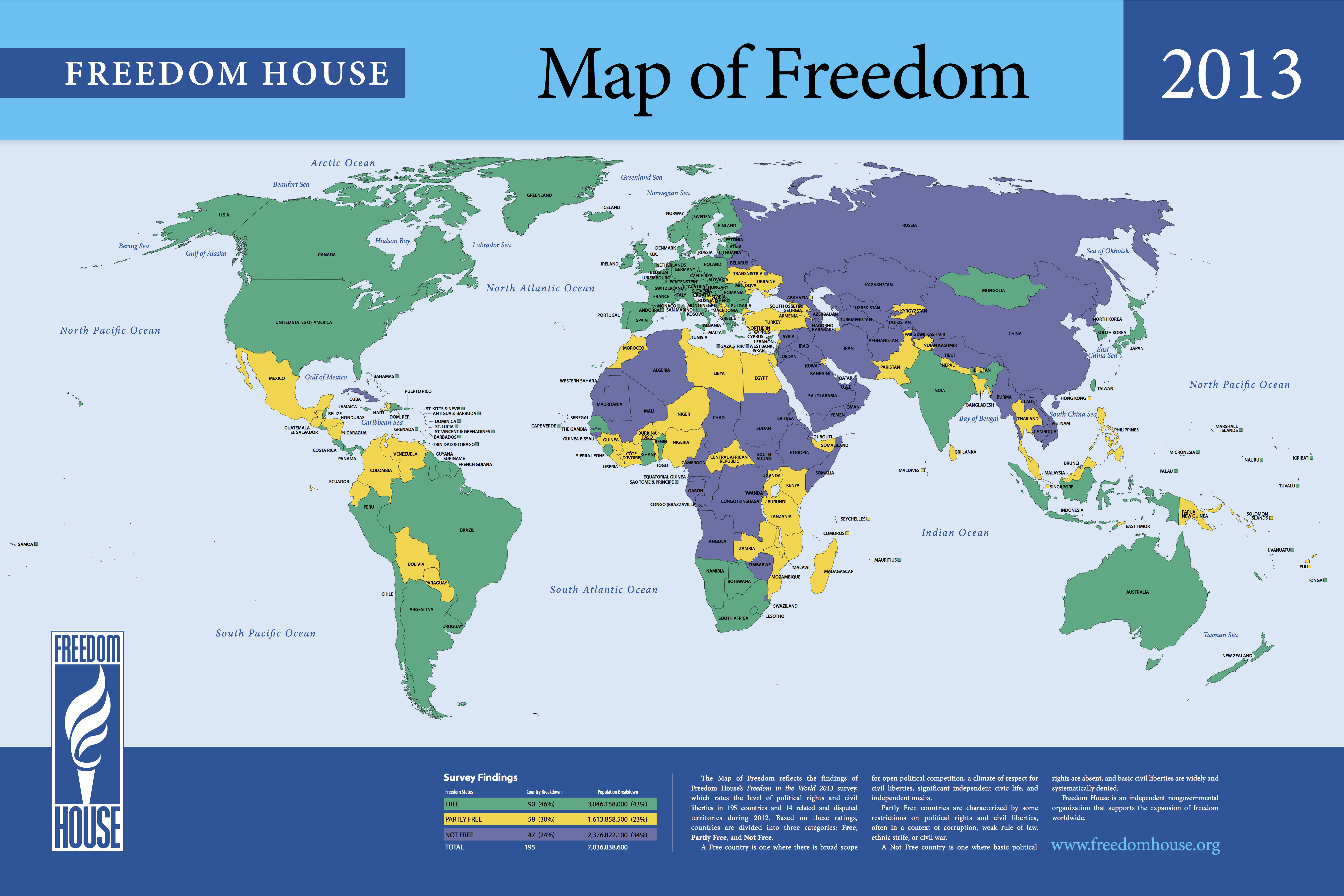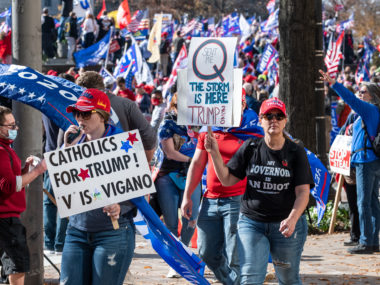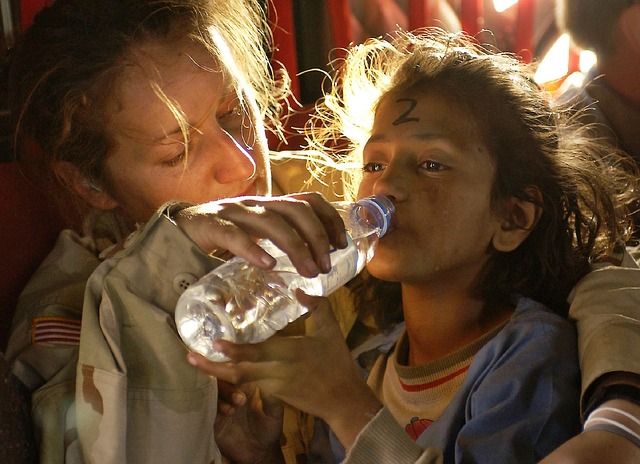By Joe Young
I recently reviewed a paper that explained how to structure an International Relations course through watching important films. It was a cool paper, and prompted me to consider the best films that teach us something about political violence. Below, I offer a short (incomplete) list of some films that I enjoy and teach us something about political violence. I also suggest a couple non-obvious (the whole Die Hard series and anything with the Rock are no brainers) films to avoid.
Battle of Algiers is the gold standard for a dramatic portrayal of insurgency, terrorism, torture, and colonialism. Most of the actors were actually involved in the Algerian conflict and some of the footage is spliced from real events. If you haven’t seen it, go watch it right now. Stop by, and I’ll lend you my copy.
2. The Siege

3. District 9
This 2009 science fiction thriller is built on actual events from Apartheid-era South Africa. While the movie is one large allegory about apartheid, segregation, xenophobia, and race, it is also has plenty of action. For students of ethnic conflict, it brings up some really fascinating questions. For example, how much of a particular ethnicity does one have to have in their blood to count as a member of that group? How might this influence being accepted or rejected by one’s group or the alternative ethnic group?

Movies to Avoid (or at least don’t take them as a useful guide for understanding political violence)

2. Rendition
Is torture moral? Does it work? These are the critical competing questions most think we should ponder when considering policies of so-called enhanced interrogations. Can we get any inspiration from Jake Gyllenhaal to answer these questions? Unsurprisingly, the answer is no. Torture is used, it is unclear whether the information is useful, it is unclear whether the recipient was guilty or innocent, and Jake Gyllenhaal waffles over his role in all of it. I hear Zero Dark Thirty also flubs torture, but to be fair, I haven’t seen it (by design).
What am I missing? What other good films should be added to the list? Which should be avoided?







40 comments
What?!? A list of films about political violence that doesn’t include The Outlaw Josey Wales? High Plains Drifter? The Magnificent Seven? John Sayles’ Men with Guns? Sigh. I think you need to watch more movies, Joe. (I’ll bring the popcorn.)
Jay, I hate to admit, but I haven’t seen any of these. I have a spring break project now. Thanks!
Lord of War (international arms trade), Last King of Scotland (Idi Amin), and Thirteen Days (Cuban Missile Crisis). I have successfully used each of these in my Intro. to IR classes.
I’d also do High Noon (collective action problems at their finest) and I always show Judgment at Nuremberg in my HR and Institutions class…covering issues of international justice, post-war transitions, and international and domestic apathy toward political violence.
Nice additions. I haven’t seen Lord of War, but the other two are classics.
“Prisoner of the Mountains” (http://www.youtube.com/watch?v=mogQ0p1QBQA) – great movie about insurgency in the Caucasus.
Good suggestion Adrian.
A Nicolas Cage recommendation? Bah, humbug. A couple of additions: Carlos, the IFC miniseries on Carlos the Jackal, and the Baader Meinhof Complex (German: Der Baader Meinhof Complex) are excellent for the psychology of terrorism. Also, Westerns? Butch Cassidy and the Sundance Kid stands out, but that’s an entire genre about state-building, vigilante violence, and private security operations.
Daniel, Baader Meinhof is fantastic and sticks close to the real story. It also helps dispel the miss that alliances among rebel groups is somehow a new, post 9/11 phenomena. I agree, Nicholas Cage is almost = the Rock, thus making most of his films unwatchable (except a few of the old ones).
Thanks for the post. I am in the process of putting together a film-based course on Human Rights and Human Security, and your list has some films I’m considering incorporating.
I’d add The Wind that Shakes the Barley to the list. I used it in my insurgency class this semester and had good results.
That’s a good one. I also like the Dancer Upstairs, a rough approx. of the Shining Path/Guzman capture story. John Malkovich directed it too.
The siege was also written by the New Yorker journo Lawrence Wright, fwiw..great film to be fair
Cool. I didn’t know that. The Looming Tower was a great journalistic account of the steps to 9/11. Makes sense.
I’m hesitant to dismiss a movie because it flubs a bit on questions of torture. If anything, I find it a bit more true to life because of it.
Is the info useful? Is the recipient guilty or innocent? The harsh reality is 1) sometimes (with varying degrees) and 2) it’s not always so clear, especially if we can assign guilt to possible future actions. I appreciate that any movie that portrays torture cannot illustrate the counter-factual that would elucidate those questions. It’s necessarily muddled.
Great list Joe. I am a fan of Four Days in September (“O Que E Isso, Companheiro?”), which dramatizes the kidnapping of US Ambassador Charles Elbrick in Rio in 1969 by MR-8. Its based on a book by one of the former terrorists who is now a Senator in Brazil, Fernando Gabiera. It does a good job of focusing on the motivations of the terrorists and how they plan to use the attack to break through the censorship imposed by the military govt. Never have shown it to a class – I use Battle of Algiers. But I may pilot it next year. Alan Arkin is excellent in it!
Jim Piazza
Hey Jim. I love that movie too. I saw it when I lived in Brazil. City of God and Bus 174 are other Brazilian films about political violence worthy of The List. City of God, is of course, the Brazilian film about organized crime in the favelas, and Bus 174 is a mixture documentary/retrospective of the kidnapping of a city bus by a former street kid in Rio and what it said about violence in Brazilian society.
I recall going back to watch The Siege again the week after 9/11 and being struck by how much what was on screen resembled what CNN and others were transmitting.
And at the risk of incurring more boos for Bruce Willis, I’ve also thought Tears of the Sun was better than expected and surprised me with an odd understated tone, certainly having explosions for American audiences, but not being over the top as one might expect from Hollywood.
And if commercial-interests-influencing-foreign-succession-planning-with-drone-strikes-on-would-be-reformers counts, then I would say Syriana.
Hotel Rwanda?
Thanks for the additions, Richard. I do admit, I liked Tears of the Sun. It was a product of our interest in ethnic conflict, genocide at that time. Not too complicated, but offered a micro-narrative about the problems of intervening in such conflicts. Lots of superfluous blowing things up and a nonsense love story side interest, but certainly worth streaming for free. Similar story for Hotel Rwanda, although Christian Davenport has some amazing work (http://www.genodynamics.com/Site_7/GenoDynamics.html), which really counters the dominant narrative dramatized in the film.
And now that I’m thinking about it, what about things like Elite Squad: The Enemy Within? I know it sounds like an American B-movie, but it takes place in Rio and follows up on corruption, special police, the favelas…
Great suggestion. Another one that I will add to my cue.
Waltz with Bashir is a really interesting take on the inability to create coherent narratives of violent conflict, even among those who participated in the violence.
I’ll second this one. Really good film, and I thought the visual style of the animation was stunning.
I heard about this, but never saw it. Have to put in the queue.
I always show “The Weather Underground” in classes on the politics of terrorism. It goes over well.
That’s a great one. One thing I love is that it shows how being clandestine has a romantic aspect, another reason rebellion is often a young person’s game. It is also paired well with “Guerrilla” the story of the SLA and Patty Hearst. Probably need a separate list just for documentaries.
I don’t think I have seen it, but for an alternative view of The Dark Knight Rises: http://https://politicalviolenceataglance.org/2012/08/06/pop-struggle-whats-political-about-the-violence-in-the-dark-knight-rises/
Thanks Will. I forgot about Christian’s post. I like his interpretation, but I don’t think this was Nolan’s intent. Art’s meaning is often in the beholder, so I prefer his take to what I think Nolan’s was.
I’ll chime in again to endorse The Last King of Scotland and to add The Killing Fields.
The Killing Fields is so painful. I showed it and Ghosts of Rwanda in a class a few years ago and depressed the hell out of everyone.
Other suggestions: Traitor, Five Minutes of Heaven, V for Vendetta, The Peacemaker, Munich, Body of Lies, The Kingdom.
Thanks Karolina! We are in the process of making a master list and putting it up on the blog somewhere. We will definitely include these.
I recommend “The Act of Killing”, documentary by Joshua Oppenheimer. It confronts Indonesian officials who took part in the anti-Communist campaign of the sixties.
http://theactofkilling.com/
Some that haven’t been mentioned yet:
Shame (Ingmar Bergman)
Paradise Now
The Quiet American
Welcome to Sarajevo
General Idi Amin: A Self-Portrait
Lumumba
S21
Germany, Year Zero
Deer Hunter
Paths of Glory
Starship Troopers
If you embrace an interpretation of political violence that includes the non-physical (though it does include an assassination) it is hard to find a better example than The Lives of Others.
‘Lost Command’, a film starring Anthony Quinn, as a French paratroop officer, starts with Vietnam and ends in Algeria.
The University of Ulster has assembled a list of films that include “The Troubles”, alas the direct link does not work and the Google cache does:
http://64.233.183.104/search?q=cache…lnk&cd=1&gl=uk
Quite a range there to chose, my favourites are Harry’s Game, The Crying Game and Bloody Sunday.
There are a number of films on Ireland (some include Northern Ireland themes), with classics on the struggle for independence, like Michael Collins and the Irish Civil War The Wind that shakes the Barley. Take a peek at this list: http://www.lclark.edu/~campion/hist400/films.htm
Joe
My comment about this on the Lowy Institute’s blog, The Interpreter, including a nomination for Breaker Morant: http://www.lowyinterpreter.org/post/2013/03/21/Rule-303-and-political-violence-on-film.aspx
I think no list on this subject should be complete without two particular movies: Roman Polanski’s Death and the Maiden, with Sigourney Weaver and Ben Kingsley and Jonathan Sanger’s made for TV movie, Down Came a Blackbird, starring the late and incomparable Raul Julia and also incomparable Vanessa Redgrave. Both movie’s deal with the aftermath of torture. Don’t be fooled by the commercial nature of a typical Polanski film, or of Sanger’s mostly uninspired television career, both of these movies are brilliant, poignant, and touch a a difficult subject; the acting is superb in both.